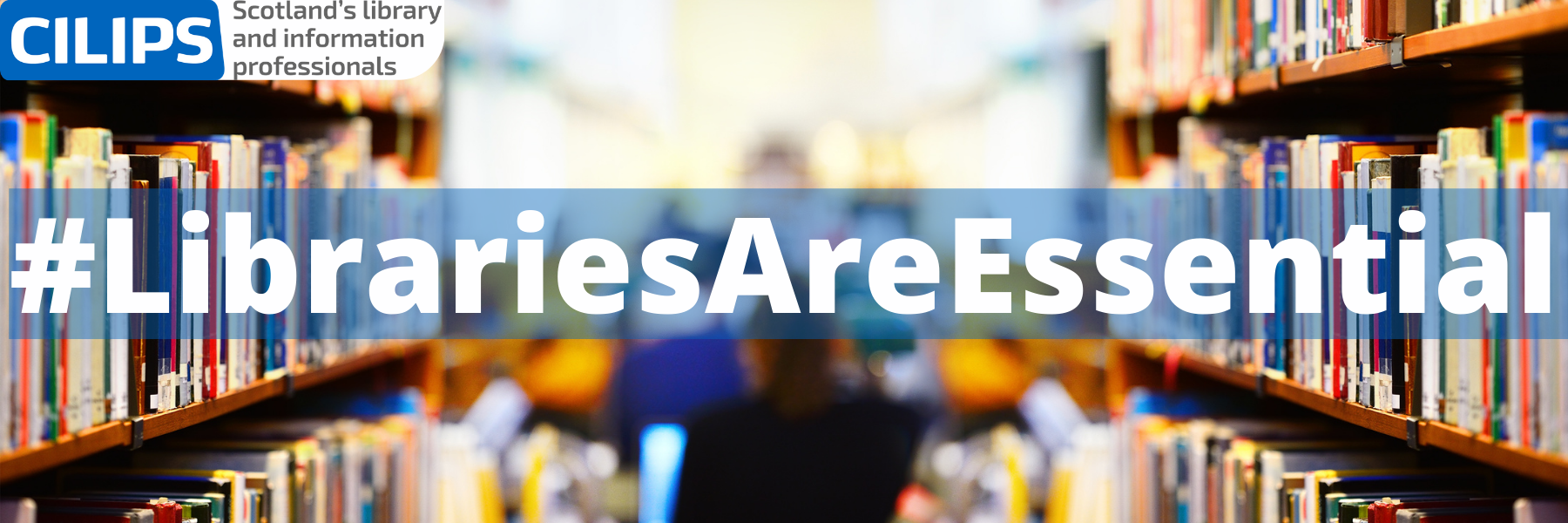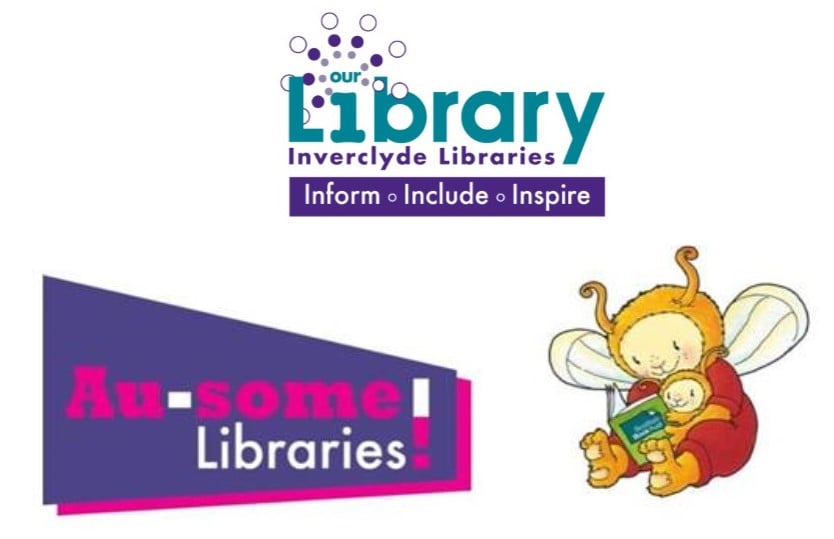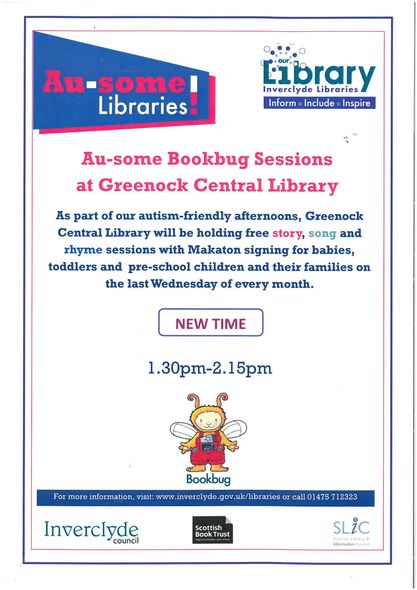#LibrariesAreEssential to Supporting Neurodiversity
Category: #LibrariesAreEssential, Blog, News
by Alison Nolan, Team Leader, Inverclyde Libraries
Supporting Neurodiversity – Inverclyde Libraries
The life-enhancing mission of libraries combined with the large incidence of autism challenges libraries to adapt programming and library services to meet the needs of our increasingly neurodiverse world. The importance of ensuring that all libraries become inclusive of individuals whose disabilities are not physically visible is increasing as the numbers of autistic individuals continues to rise.
The term ‘neurodiversity’ is a concept more than a definition, label, or diagnosis. It’s notably defined in ways that are social, cultural, physical and neurological. A neurodiverse perspective ‘regards individuals with differences in brain function and behavioural traits as part of normal variation in the human population’. Neurodiversity encompasses autism, dyslexia, dyspraxia, dyscalculia, ADHD, Meares-Irlen Syndrome and OCD among many other cognitive differences, including mental illness. We in Inverclyde Libraries have recognised that there are certain things we can do to ensure that we provide a more accommodating support system for our neurodiverse residents and their families.
Autism: Inverclyde Libraries’ ‘Au-Some Libraries!’ initiative was conceived in 2017 as part of a Public Library Improvement Fund bid to address the need for accommodations and relevant library programming that would increase library engagement among autistic residents and their families. As part of the ‘Au-some Libraries!’ project, various measures were taken to make our space, resources and services more accessible to people with autism. Library branches have colour-coded floor plans, pictorial signage and quiet/noisy times signage, while resources include BSL and Makaton book stock, sensory boxes in all branches, a sensory tent, weighted mats and wobble cushions. Pre-lockdown services featured ‘Au-some Afternoons’, designated times when the library is closed to the general public and noise kept to a minimum, a Makaton-signed Bookbug session and Au-some library time. Email packs have also been prepared for schools which include details of Au-some services, resources and a social story for borrowing books.
Provision during lockdown includes Makaton-signed Bookbug sessions on a dedicated Facebook page and the Makaton ‘sign of the week’ link posted on social media.
It was also important to ensure that staff were made aware of challenges and potential barriers faced by people with autism and their families, and how Inverclyde Libraries would address these and make the libraries as accessible and welcoming as possible for everyone. For example, communication can be problematic for those with autism, and Makaton training and annual Makaton refresher training helps alleviate some potential communication issues. Makaton signing had become part of our everyday service pre-lockdown and all of these measures not only supported families living with autism but also helped secure a Makaton Friendly Award for Greenock Central Library. Our programming included Au-some Bookbug sessions/ Au-some Art Classes and resources to support learners and their families. We provide quick reads, books for a variety of literacy levels including emerging, and books for those with dyslexia. For children and young people, we stock multi-sensory, tactile, and a range of dyslexia-friendly books. All staff are also Dementia Friendly trained by Alzheimer Scotland.
We provide dedicated autism-accessible afternoons supported by trained staff. Each branch is equipped with a wide range of specialist resources and equipment to support children and young people with autism. Certain aspects of our programming will inevitably help all of our residents, including those who chose not to disclose, those who suspect they are neurodiverse or simply those who are just too shy to ask for help.
Mental Health: To support mental health and anxiety, Inverclyde Libraries links to the Reading Agency’s Reading Well Books on Prescription collections which include Reading Well for Mental Health, covering anxiety, health and wellbeing topics and mood-boosting titles.
Pre-lockdown, Inverclyde Libraries provided five ‘Chatty Cafes’ which met in various library branches and brought together people with similar interests: Chatty Crafters (knitting), Bead & Blether, Blooms & Biccies (gardening), Remember When… (reminiscence) and Tea & Touchscreens. The initial objective of the cafés was to reduce social isolation and loneliness by giving people the opportunity to come together, learn new skills and/or just meet people and chat over a cup of tea.
With the continuation of lockdown, Inverclyde Libraries wanted to reconnect people again digitally to reduce feelings of isolation and provide an antidote to any subsequent anxiety. Three online Chatty Cafés – Chatty Crafters crochet sessions, Blooms & Biccies gardening workshops, and a project funded by Carnegie UK – were rolled out at the beginning of 2021. All proved popular with attendees and provided activities that people enjoyed and/or an opportunity to talk to others.
Inverclyde Libraries also provides an online Book Group to encourage people to get together safely and chat together about books – again, an opportunity to reduce feelings of isolation and loneliness and any potential anxiety.
Inverclyde Libraries Accessibility Policy (2018/19):
Extract from Position Statement: ‘We aim to ensure that any barriers which prevent or hinder access to our services are removed or minimised and to train our staff in order to increase awareness of the variety of access requirements our users have. A key and fundamental part of this access is to ensure that it is as inclusive as possible.’
Our neurodiversity libraries and library collections are essential to reflect our demographic. We can curate and provide access to a collection of information, materials and resources on autism acceptance and neurodiversity. Libraries are uniquely placed to amplify autistic voices and reflect the goals of the neurodiversity movement and paradigm, as well as the larger disability rights and disability justice movements. In turn, we can fight stigma, ableism, oppression, and inaccessibility.
Click here for more information about Inverclyde’s Au-some Libraries, upcoming activities and helpful links provided by Inverclyde Libraries.



